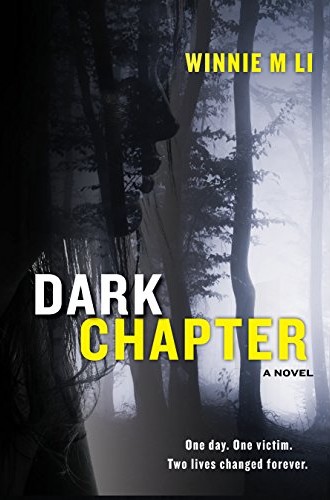A novel that shows the power of #MeToo
Winnie M Li’s story of sexual assault is hard to read. That’s precisely why it’s so important.
As I’ve watched the #MeToo campaign encourage new public conversations about sexual assault and sexual harassment, I keep thinking about a book I read a few months ago. It’s a novel that reads like a memoir and is being marketed as “inspired by true events.” Perhaps, like Nicole Kraus in Forest Dark, Winnie M Li intentionally blurs the line between memoir and fiction. Or perhaps Li is simply such a vivid writer that the prose feels undeniably real. In either case, Dark Chapter exemplifies what’s so powerful, painful, and necessary about the conversations that have been sparked by the #MeToo movement.
The novel begins with a young Taiwanese-American who (like the author) moves to London after graduating from Harvard and embarks upon a series of adventuresome (and sometimes naively foolhardy) solo travels. One day, while hiking on an isolated trail in Ireland, she happens to cross paths with a teenage rapist. The rest of the book recounts the savage attack and its aftermath. It’s hard to put down, so compelling is the story and the empathy it creates between reader and character. Will he be caught, and if so, will he be punished? How will she put her life back together?
Li’s prose feels more documentary than crafted, and her description of the sexual assault is brutally detailed. I found those pages hard to stomach, and I’ve never been sexually assaulted. I found myself wondering: if I had experienced the trauma of sexual assault before reading this book, would I find it healing to read about an assault in such detail, or would it be a painful trigger of my own trauma? Or perhaps both? Then I began to wonder: was it traumatic for the author, a survivor of a sexual assault like the one in the book, to write these painful words in so much detail, or was it therapeutic? Or perhaps both? More fundamentally, how do the dynamics of trauma and healing in reading and writing about sexual assault shape the ethics of how we engage with one another in this kind of communication?
These questions also animate the #MeToo movement. Tarana Burke, who founded the original Me Too online movement in 2007, explained to CNN: “On one side, it's a bold declarative statement that ‘I'm not ashamed’ and ‘I'm not alone.’ On the other side, it's a statement from survivor to survivor that says ‘I see you, I hear you, I understand you and I'm here for you or I get it.’” In other words, talking about their experiences with sexual assault or harassment can help survivors in more than one way.
But describing an assault in the public sphere—and there’s nothing more public than posting something with a viral social media hashtag—involves the vulnerable task of disclosing painful details that our culture would rather deny. Such disclosure can be painful, as I experienced when reading Li’s novel. But it’s also necessary. Sexual assault and harassment are so prevalent in part because our culture rewards us for ignoring, minimizing, and normalizing them.
Rachel Malik makes this point as she analyzes the culture that led British politicians Michael Gove and Harvey Kinnock to make offhand Harvey Weinstein jokes on a television show. In a blog entitled “Can’t you take a bit of sexual assault?” Malik explains that one of the most effective ways to upend our culture’s normalization of sexual assault is
to describe harassment and assault in chilling narrative detail, to defamiliarise it, sever it from the label of a ‘bit of fun’ or ‘things getting out of control’. Some of the most powerful witness from women has told in painful specificity exactly what happened. It makes for uncomfortable listening and reading, and rightly so.
#MeToo may evolve from a social media trend into an organized longer-term campaign. But even if it doesn’t, the pedagogical work it’s already done is significant. Being inundated with individuals’ painful stories of sexual assault is like looking into a mirror. It shows us what kind of culture we’re situated in, and it challenges us to name—and fight against—the painful things it refuses to hide.







